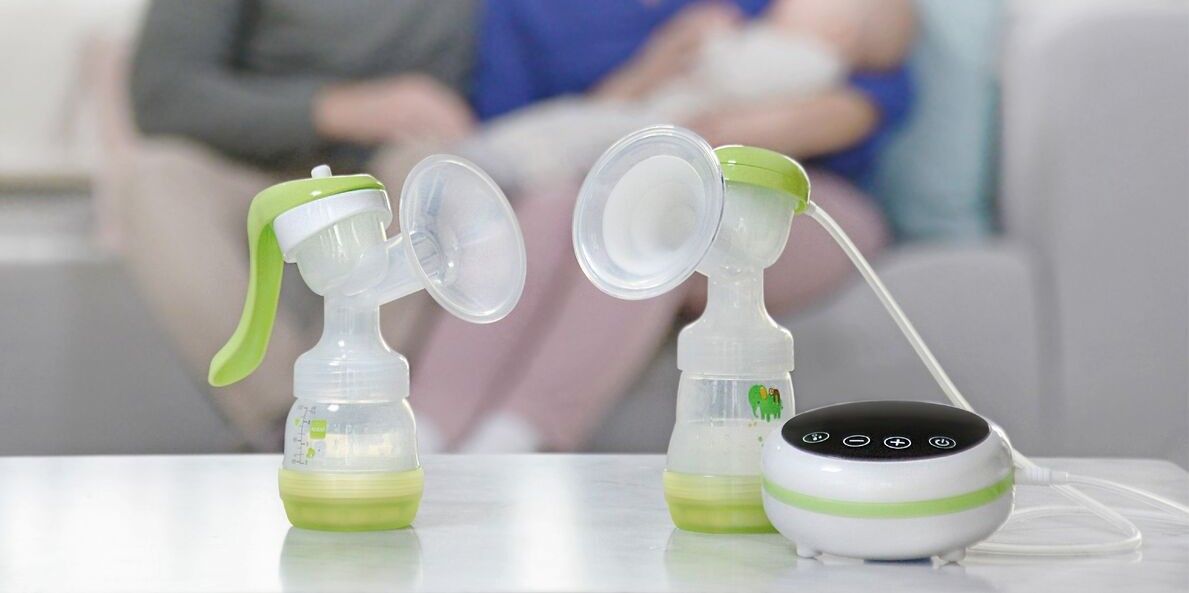You are in the first trimester, in week 9 of pregnancy and therefore at the start of the third month! Here we're going to tell you how your baby is developing, why it is no longer called an embryo, and how pregnancy can affect your body at this stage.
What's Going On in Your Belly Right Now?
Slowly, the little grub is straightening out, even doing somersaults, and the first detailed features are emerging, including the fingers and toes. All of the organs are now developed, which is why we will start referring to it as a fetus instead of an embryo.
Your baby is now about the size of a cherry.

Not only are the organs fully formed at this stage, but some of them are actually working already: Blood production is starting in the liver, the heart is beating steadily, and the kidneys are maturing.
Other things that are happening to your fetus:
- Until now, the embryo had no bones at all – now the bones in the arms are gradually starting to form.
- The eyes are still on the sides of the head, but they are already covered by eyelids.
- The ears and external parts of the ear are moving to the "correct" place on the head.
- If you are expecting twins, they can now be seen on an ultrasound scan.
The fetus is around 16-24 mm long and weighs only about .25 ounces!
How Do You Feel at 9 Weeks Pregnant?
Nausea continues to be a problem for many pregnant women – and often persists until around week 12. Your sense of smell and taste are also more sensitive than usual. This can affect your susceptibility to nausea, as mentioned above, as well as your eating habits. Even your favorite foods may suddenly not seem appetizing to you.
The level of the pregnancy hormone HCG is now at its highest – this can result in some pregnancy-related problems such as fatigue and morning sickness becoming more pronounced.
Your womb is now about the size of an orange. While it is not yet taking up a ton of space, your clothes may start to feel a little tight around your mid-section. For many women, this is caused by hormone-related bloating. The higher level of progesterone causes smooth muscle to relax – which also affects the gastrointestinal tract and vascular walls. This can lead not only to constipation, but also to heartburn and varicose veins.
Heartburn during pregnancy is very common and in many women occurs mainly in the later stages, due to pressure on the stomach. One of the symptoms may be a sore throat in the morning. Sleeping with your head slightly raised may bring some relief. Having several small meals and eating nothing for a few hours before going to bed may also alleviate these symptoms.
Changes to your blood circulation may occur in order to supply the baby with more oxygen. This may cause you to get out of breath sooner. Pregnant women may now require as much as 40% more breath! If you get out of breath from walking quickly, that's not unusual.
If you have an ultrasound scan, it will now be carried out by using an ultrasound wand in the vagina instead of the abdominal wall. With a bit of luck, you should be able to watch your baby doing somersaults and floating around in the amniotic sac.
The antenatal check-ups that are available can vary from one health insurance company to another. It is best to ask your gynecologist when you can claim which services and what additional, voluntary examinations are possible.
In particular, the question of prenatal diagnosis is not always straightforward – there are now various ways of finding out before the birth whether the baby is suffering from a genetic defect or abnormality.
The following options for prenatal diagnosis exist:
- Nuchal fold measurement (nuchal translucency measurement)
Ultrasound screening is used to measure the build-up of fluid at the back of the fetus's neck. If it exceeds a certain level, this can indicate a chromosomal abnormality (e.g., Trisomy 21). Further tests can provide more conclusive results. - Combined test
Here the results of a nuchal transparency measurement are combined with testing the mother's blood. This test is best carried out during week 11 of pregnancy. - Chorionic villus sampling
This is an invasive test: A needle is inserted through the mother's abdomen or vagina to remove cells from the fetus, which are then examined. - Blood test for Down Syndrome
The mother's blood is tested to establish whether the child has Down Syndrome (Trisomy 21). The test has been available in Europe since 2012 and is regarded as very safe, but not 100% reliable.
Most of these tests can be carried out around the 11th or 12th week of pregnancy, but they are neither essential nor compulsory. Chorionic villus sampling, being an invasive test, also carries some risk, including possible miscarriage. That is one reason why it is worth starting to think now about whether you would like to have one of these tests and how you would deal with the results.
Sources:
https://www.medizin-transparent.at/bluttest-down-syndrom/
Photo Credit: Unsplash




























